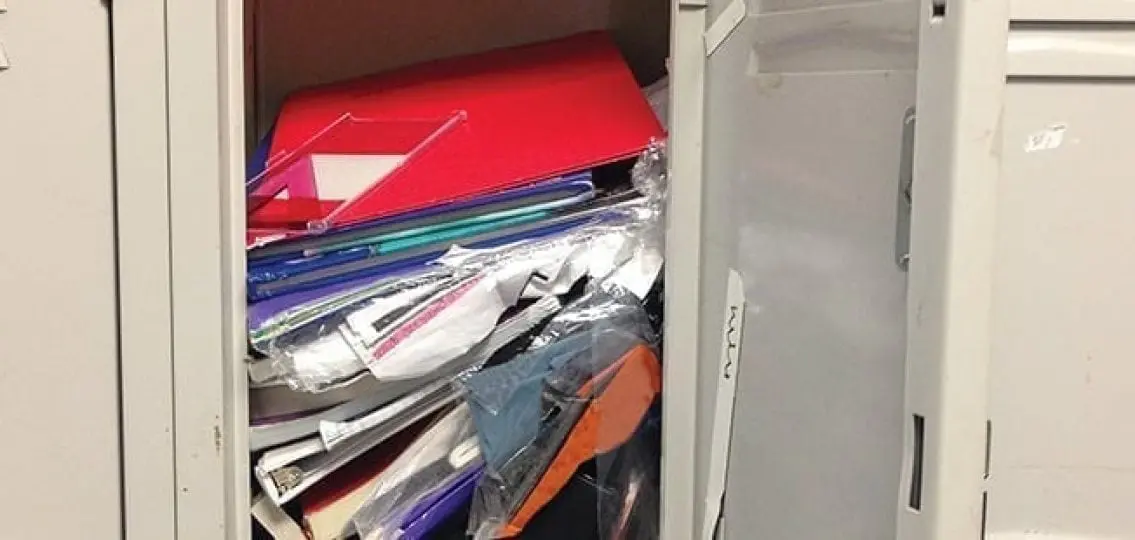Dear Your Teen,
Hello good morning. I have a question. I hope you can help me. I have a daughter (12 years old) and in the last 6 months, she has lost many things at school (water bottle, PE shoes, sweater, glasses, books). Now I am getting worried. I don’t even know what to think…is she being bullied? Is she depressed?
We have talked to her about it. I have directly asked her if she is being bullied, and she said she is not. I am so desperate I don’t know to help her. Any suggestions?

EXPERT | Matthew H. Rouse, Ph.D.
Sudden changes in a child’s behavior can be upsetting for any parent, sending them into “worst case scenario” territory. However, when parents actually dig into the behavior and examine it, they often find that there were subtle signs of a shift in behavior all along. And while it may be true that the behavior is a signal for something serious—like a traumatic event or even an illness—parents can keep themselves from jumping to conclusions by gathering all the facts.
4 Steps to Help Understand a Sudden Change in Behavior:
1. Gather information.
[adrotate banner=”98″]When trying to understand any behavior, parents should ask themselves the following questions:
- When did the behavior start? Was it a sudden onset or gradual?
- How severe is the behavior? Is it getting in the way of her functioning? How often does it occur?
- Are there any other behaviors that go along with it, that maybe started around the same time?
- Was there anything that changed in her environment at around the same time the behavior started?
- Is my child healthy? Getting good sleep? Eating well?
2. Rule out or consider a medical issue.
Once all the information is gathered, the place to start is by eliminating anything medical. The ability to pay attention to one’s surroundings and stay organized may be affected when there’s some kind of medical issue, like an undiagnosed virus or infection.
For this girl, my first thought was whether she may have attentional difficulties or even might meet criteria for ADHD, because one of the core symptoms of ADHD is frequently losing things. Is she also easily distracted? Does she often seem not to listen when spoken to, or tune people out? Does she make a lot of careless errors on homework or tests? If so, it may be that losing things is part of a bigger issue.
Because ADHD is less prevalent in girls than boys, it can sometimes get overlooked in girls.
It may be that there were signs of her struggling in this area all along, but it only caught up with her with the increased demands of middle school. If parents suspect their child may have ADHD or any other diagnosis, a diagnostic evaluation by a qualified mental health professional should be their next step (pediatricians are great at pointing parents in the right direction).
3. Examine major events.
The next area to explore is big life events—has there been any significant change in the child’s life? Moving to a new house or a new school? Parents getting divorced? Passing of a loved one or a pet?
For the parent who submitted this question, I wondered if their daughter had recently started middle school.
For many kids, middle school means a big leap in terms of personal responsibility. Whereas elementary typically houses kids in a ‘homeroom,’ with most periods in the same room and a dedicated place to store belongings for the day, middle school may mean switching rooms for every class period and keeping track of their stuff during each transition. Some kids make the jump to middle school with ease, whereas others need a little bit more support.
If the problem with losing things stems from the increased organizational demand of middle school, I would recommend that this parent help their daughter come up with some concrete systems for keeping track of belongings—a backpack inventory checklist that is attached to the inside of the backpack, binders with zippers so that papers are less likely to get lost, alerts on phones to remind her to check her belongings, etc.
4. Identify behaviors that may be connected.
Parents should also ask themselves if there are other behaviors that seem to have cropped up at the same time.
If there are associated behaviors, like changes in mood or irritability, shifts in how often a teen sees friends, or a decline in performance at school, it may be that the noticed behavior is part of a constellation of symptoms that suggest a mental health issue, like depression or anxiety.
It could be possible that sudden changes in a child’s behavior are due to a difficult situation like bullying. Could there be kids at school who are bullying her into giving them her belongings and she is too ashamed to admit it? Yes. This parent could say to their daughter that she is not in trouble for the missing items and try to create a non-judgmental environment where the daughter can openly discuss what is happening to her at school. They could prime the pump by disclosing any experiences they had being bullied and communicate understanding of what it’s like.

But the parent shouldn’t nag the child with the same question—one or two more passes at the conversation only. If the parent still suspects something is going on at school, they may want to ask a trusted teacher or school administrator if they have noticed anything and take it from there.





